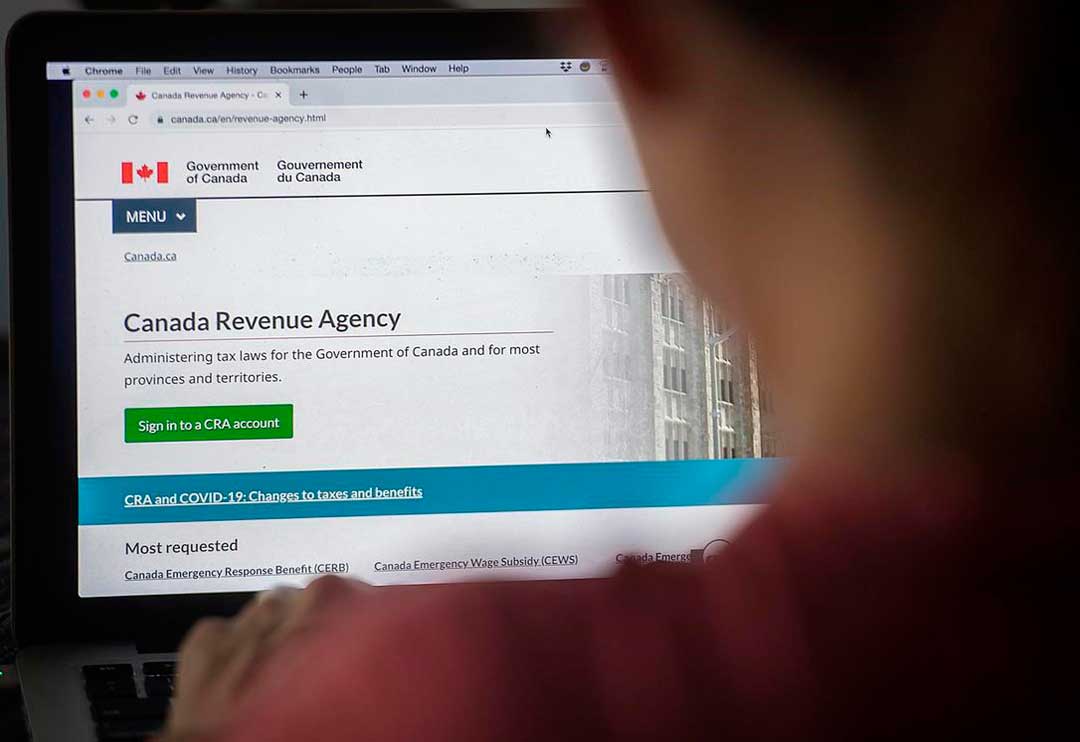
The Canada Revenue Agency has recently locked out 800,000 users from their online accounts, out of fear that people’s usernames and passwords have been hacked.
Citing the cybersecurity risk of having this information in the hands of potentially bad actors, obtained through email phishing schemes or third-party data breaches, the CRA says the move is precautionary.
“Like the accounts that were locked in February, these user IDs and passwords were not compromised as a result of a breach of CRA’s online systems, rather they may have been obtained by unauthorized third parties and through a variety of means by sources external to the CRA,” said the CRA in a statement.
“The total number of accounts impacted is roughly 800 thousand,” said the CRA.
The agency said that unlike what happened in February, it wanted to warn people ahead of time that the access to their accounts may be down, given its tax time.
If attempts are made to log in to a frozen account, the user will receive an error message informing them that their CRA user ID has been revoked.
Impacted individuals will be contacted by the email address associated with their accounts, or if there was not one on file, by mail.
Taxpayers can re-gain access to their CRA account by going to the CRA login page and creating a new CRA user ID and password or by using a different login method associated with their CRA account, the agency says.
It may take until March 22 for the issues to be resolved, but after that date, if users are unable to log in they should call the CRA.
As part of its ongoing monitoring the agency keeps an eye on any government-used usernames and passwords that go up for sale on the dark web and the CRA then moves to lock these accounts. This can happen when people use the same login information across multiple websites.
“All Canadians should monitor their CRA accounts for any suspicious activity including unsolicited changes to banking, mailing address or benefit applications made on their behalf. In addition, passwords should be updated regularly,” said the CRA.
Source: CTVNews
Newsletters
e-Newsletter – January 2018
NewslettersEvents & SponsorshipArticles & Publications
Events & Sponsorship
No Results Found
The page you requested could not be found. Try refining your search, or use the navigation above to locate the post.
Articles & Publications
Moving to the U.S. for more affordable Real Estate
Moving to the U.S. for more affordable Real Estate? Home prices have run-up in the U.S. but are mostly more affordable than major Canadian markets. Like many real estate markets worldwide, U.S. home prices have run up during the pandemic to the point of some saying...
New Goods and Services/Harmonized Sales Tax Rules
This article intends to illustrate how the new proposed Goods and Services/Harmonized Sales Tax (GST/HST) rules are to apply to the sale of goods made on July 1, 2021, or later, by a retailer that is a non-resident of Canada and not registered for GST/HST purposes,...
When withdrawing funds early from your RRSP makes sense
Most Canadians spend their working lives socking away as much money as they can in their registered retirement savings plans (RRSPs) — often feeling guilty if they’re not maxing out the contribution limits set by the federal government. Once retirement rolls around,...
Understanding the CRA Notice of Assessment
Understanding the CRA Notice of Assessment How to object if you think the CRA is wrong Most of us have received our Notice of Assessment from the CRA for our 2020 tax returns. Mostly it is pretty much as you expected – a refund or no balance owing. But sometimes, the...
A Guide to Bank Reconciliations
One of the most overlooked steps in the accounting process is completing a bank reconciliation. We'll take you step-by-step through the process of completing bank reconciliations for your business. In this day of electronic banking, many people believe completing a...